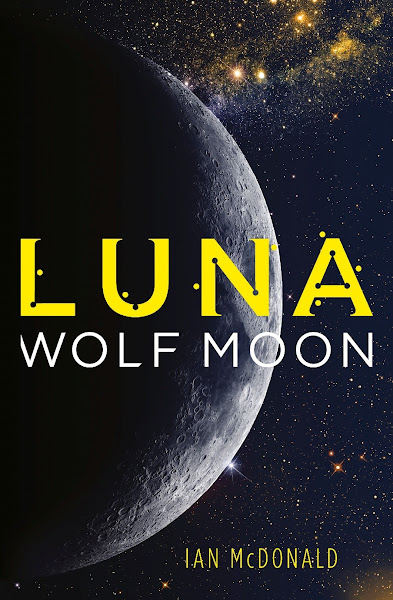
Încleștarea violentă dintre doi Dragoni ai Lunii, Corta Hélio și Mackenzie Metals, s‑a soldat cu zdrobirea definitivă a Corta și preluarea operațiunilor lor de către învingători. Dar în climatul politic complicat, problemele de‑abia încep. Deși victorioși, un atentat asupra Crucible îl elimină pe capul decrepit al clanului Mackenzie, scoțând la iveală rivalitatea internă dintre cei doi frați moștenitori. Clanul Sun, cei care instigaseră de la început rivalitatea Corta-Mackenzie, se pregătesc pe ascuns să profite de acest război civil. Din nefericire pentru Dragoni, Pământul, o sabie rotundă a lui Damocles supraveghind nemișcat cerul Lunii, nu privește cu ochi buni turbulențele care‑i amenință aprovizionarea cu energie ieftină. O intervenție în forță din partea Consiliului Lunar ar putea limita serios libertatea de acțiune a magnaților locali. Iar undeva pe ascuns, aproape uitați în vâltoarea evenimentelor, ultimii supraviețuitori ai familiei Corta își ițesc propriile planuri de a reveni în cercurile puterii – și de răzbunare.
The day the sun goes out is the day the rules break. The rule that has protected us for fifty years; the day the terrestrial states realise they have more to gain by acting together than stalking each other with knives. This is my family’s fear, Darius; the call in the night. When it comes, everything we have built, everything we have achieved, will be taken from us because we have nowhere to run.
În numeroase cazuri e relativ greu să apreciezi corect cartea din mijlocul unei trilogii; unele par povești de umplutură înaintea deznodământului fulminant (ca Vidul Temporal al lui Peter Hamilton și călătoria în Infern a lui Bobby Dollar), altele sunt paradoxal mai bune decât restul, pentru că autorul își permite să exploreze personajele în adâncime (Firefight). Cazul de față e deosebit pentru că mi‑e greu să găsesc o deosebire calitativă față de primul roman. Regăsim același ritm alert, acțiune fulminantă, intrigi, trădări, scene spectaculoase și surprinzătoare, dar și momente de reflecție, aproape poetice. Dacă aveți impresia că prăbușirea tânărului Robson Corta de la o altitudine de un kilometru într‑un habitat lunar, care are loc în primele capitole, e ceva impresionant, n‑ați văzut încă nimic – așa cum constată însuși Robson nu mult mai târziu.